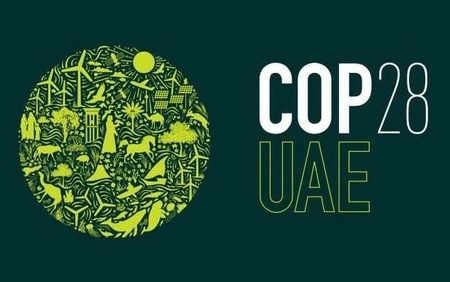Road to COP28. Energy efficiency and recovery of refrigerants
May 11, 2023

As stated by the UN Environment Programme, the refrigeration sector is becoming a global priority. The 2023 UN Climate Change Conference will take place in Dubai, United Arab Emirates (UAE) from November 30 to December 12. Sustainable cooling will be the focus of COP 28 as one of the key solutions to tackle climate change. The IIR will be partnering with UNEP’s Cool Coalition and several other organisations to deliver a “Global Cooling Stocktake report” program promoting sustainable cooling.
In the run-up to COP28, the IIR features the views of experts on sustainability in various areas of refrigeration in its monthly newsletter.
As an expert in the field of refrigerants, innovative secondary fluids, thermal storages and heat pumps, Dr Fedele states that sustainability must refer to energy efficiency and circularity. To reduce energy consumption, we must consider not only low GWP refrigerants, but also efficient fluids. “Moreover, fluids recovery is a main point, reducing leakages and re-using materials”, she says.
Priorities and barriers to achieve sustainability
In the field of refrigerant and secondary fluids, research and development is currently focused on very low GWP refrigerants and finding applications linked to renewable energies. Although such research is fundamental, Dr Fedele believes that a change of focus would be useful. “We need to have in mind that energy consumption is the point, especially in countries where energy production means GHG production. It should be interesting to expand our research always considering the final application, in terms of energy consumption and life cycle analysis”, she says.
Still, the recovery of refrigerants can present problems in terms of separation of components and lubricants.
Moreover, considering the reduction in energy consumption, the focus should be moved also towards different comfort parameters. For example, simply as a starting point, Dr Fedele underlines that effort should be made to increase people awareness about the benefits of using small measures to reduce the energy consumption. For instance, in air conditioning, higher temperatures in summer and lower temperatures in winter can be considered as feasible to maintain the well-being while reducing the energy consumption. Dr Fedele suggests that cooperation between technological and social sciences can surely help in reaching this goal.
Key technologies on the road to sustainability
According to Dr Fedele, geothermal heat pumps can be interesting technologies to reduce GHG emission (see, for example H2020 projects Cheap-GSHPs and GEO4CIVHIC).
Relevant technologies to be considered are also related to storages to shave energy peak load and match energy demand and supply, especially using renewable energies (as, for example, EU project ECHO).
What about low- and middle-income countries?
According to Dr Fedele, it is worth noting that some projects are already oriented on reducing costs related to applications, as, for example, to geothermal heat pumps, to enable more people to use them. She proposes that incentives should be considered at global level to promote the use of specific technologies (heat pumps, storages, renewable energies) in low- and middle-income countries. Interesting solutions can be related to solar cooking by using PCM and to solar technologies, offering new opportunities for access to electricity in developing countries.
Biography of Dr. Laura Fedele
Member of the IIR B1 commission on “Thermodynamics & transfer processes”. She currently heads the research unit “Thermophysical properties and performance of refrigerants and nanofluids” at the Istituto per le Tecnologie della Costruzione (ITC-CNR) of the Consiglio Nazionale delle Ricerche (Italy).
Laura Fedele’s main scientific interests are related to the discovery and development of materials and systems related to energy saving and efficiency, with the aim to reduce global greenhouse gases (GHG) emissions. Dr Fedele has 25 years of experience in the field of Heating, Ventilation, Air Conditioning and Refrigeration (HVAC&R) and building energy efficiency.


